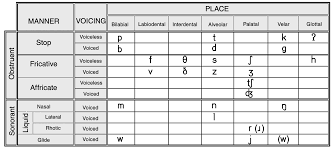记忆方法
将“consonant”分解为“con”和“sonant”。记忆方法是想象一个“son”(孩子)被“con”(一起)放在一个“ant”(蚂蚁)堆里,而蚂蚁们忙碌地工作,每个“son”在说一个音,这些音不是连续的,从而形成了辅音(consonant)。这种方法利用了视觉和语言上的联想,有助于记忆这个复杂的单词。
以上内容由AI生成, 仅供参考和借鉴
中文词源
consonant 辅音
con-, 强调。-son, 声音,词源同sound. 即发出声音的,后指语音学术术语辅音。
英语词源
- consonant
-
consonant: [14] Etymologically, consonant means ‘sounding together’. It comes via Old French consonant from Latin consonāns, the present participle of consonāre, a compound verb formed from the prefix com- ‘together’ and sonāre ‘sound’. Its application to particular speech sounds, contrasted with ‘vowels’, comes from the notion that they were ‘pronounced together with’ vowels, rather than independently.
=> sonorous, sound - consonant (n.)
- early 14c., "sound other than a vowel," from Latin consonantem (nominative consonans), present participle of consonare "to sound together, sound aloud," from com- "with" (see com-) + sonare "to sound" (see sonata). Consonants were thought of as sounds that are only produced together with vowels.
- consonant (adj.)
- early 15c., from Old French consonant (13c.), from Latin consonantem (nominative consonans), present participle of consonare (see consonant (n.)).
权威例句
- 1. The quality of this suit isn't quite consonant with its price.
- 这套衣服的质量和价钱不相称.
- 2. " N " is a syllabic consonant in " button " .
- 在 button 这个词里n是 构成音节的辅音.
- 3. These are common consonant clusters at the beginning of words.
- 这些单词的开头有相同辅音组合.
- 4. I found their work very much consonant with this way of thinking.
- 我发现他们的工作与这种思维方式非常一致。
- 5. His view on the issue is consonant with mine.
- 他对这个问题的看法和我一致.

